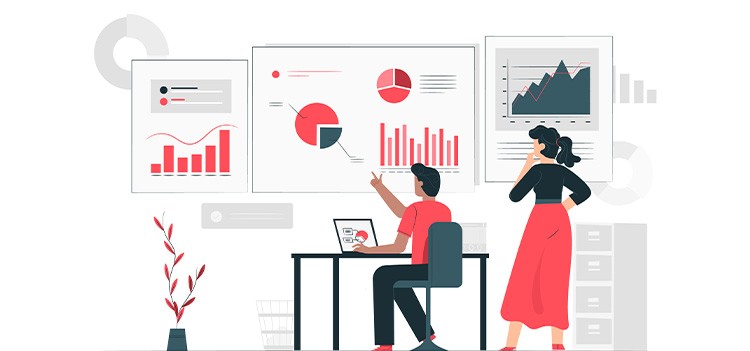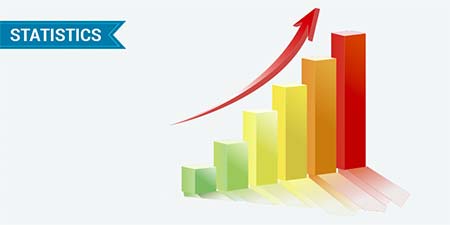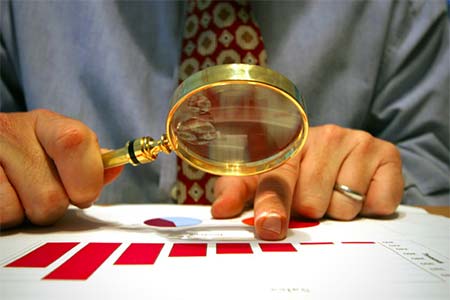Are you interested to know more about the career opportunities available after B.Sc Statistics?
Are you looking for the job roles available after B.Sc Statistics?
Read this article till the end to know more!
What is B.Sc Statistics?
The B.Sc Statistics is the branch of study where the students will be trained to perform various analytical and mathematical tasks like analysis, collection, presentation and organization of the numerical data. The B.Sc statistics students are also trained to interpret the aggregates of data that is too large and is difficult to understand by ordinary observation.
The main aim of the B.Sc Statistics students is to collect, study, analyse, interpret and use it to solve the industrial, social and scientific problems. The statistics find its application in almost all the fields like life sciences, economics, data science, risk management and marketing management.
The statistics subject is often bundled with relevant subjects like mathematics, computer science and the B.Sc Statistics students will be learning these subjects simultaneously to analyse the data and provide accurate information.
Typical Employers for B.Sc Statistics students
The main employers for the statisticians are in the organisations of the sectors that are related to economics and finance. Some of the employment areas for B.Sc Statistics students are:
- Banking & Finance
- Financial Institutions
- Insurance and Accountancy
- Market Research Organisations
- Pharmaceutical Industries
- Transport Companies
- Stock Exchanges
Key Skills required for B.Sc Statistics students
A degree in statistics equips students with strong data analysis and manipulation skills. The B.Sc Statistics students have the opportunity to complete the data collection and numerical presentations, undertake project work and give presentations. Some of the key skills required are:
- The students should have analytical research skills
- The students should be capable to interpret the information by generating the reports based on the data collected
- The students should be capable to identify the work patterns
- The students should have excellent problem-solving and logical thinking skills
- The students should be able to understand the abstract mathematical concepts
- The students should have excellent communication skills
- The students should be well versed with interpersonal skills
- The students should have excellent decision-making skills to make quick decisions
Career Scope for B.Sc Statistics Students
The B.Sc Statistics students are mainly hired in the companies for data collection and data interpretation roles. The B.Sc Statistics students are required to collect and analyse the data of the consumer that is very crucial for business development and also necessary for enhancing the customer base. Some of the roles available after B.Sc Statistics are:
Actuarial Analyst
The Actuarial analyst uses all the statistical formulas to assess the risk, especially in life insurance firms. They will be working on the average life expectancy of the people based on the different demographics to determine the policy premiums that should be charged. They are required to understand and use the complex mathematical formulas especially in the areas of advanced statistics and modelling. They use specialised software to complete data analysis tasks and come up with proper and readable data. They are required to provide technical support to the team of actuaries by providing statistical reports and analysis. They are also responsible to write the comparison results of the findings and produce these reports in a readable format.
Data Analyst
There is a high demand for data analysts across all the sectors such as IT, finance, consulting, manufacturing, pharmaceuticals, government and education. They are responsible to develop records, management processes and policies. They are required to identify the areas to increase efficiency and automation processes. They are required to set-up an automated data processes mechanism. They are required to identify, evaluate and implement external services and tools to support data validation and cleansing. They are required to track the key performance indicators and monitor the audit data quality. They are required to gather, understand and document detailed business requirements using appropriate tools and techniques. They are responsible to manipulate, analyse and interpret the complex data sets relating to the employer’s business. They are also responsible to provide sector and competitor benchmarking.
Statistician
The statistician is concerned with the collection, analysis, interpretation and presentation of quantitative information. The statisticians will be responsible to design and manage experiments of the surveys conducted. They are required to process and analyse the data in context, looking for patterns to help make decisions. The statisticians interpret the data by doing a thorough analysis of the data. They are required to design experiments, trials and surveys to produce the required data. They are responsible to make decisions based on the data obtained and help the organisation to increase its customer base. They are required to monitor the data collected throughout the shelf life. They are also required to provide projections of future developments and ventures for the company based on the data collected.
Data Scientists
The data scientists are required to extract, analyse and interpret a large amount of data from the range of sources using algometric, data mining, artificial intelligence, machine learning and statistical tools. They work closely with the businesses to identify issues and use the data to propose solutions for effective decision-making. They are required to build algorithms and design experiments to merge, manage, interrogate and extract data to supply tailored reports to customers or for a wide organisation. They are also required to test data mining models to select the most appropriate ones for the use of projects. They are also required to create clear reports that tell compelling stories about the behaviour of customers. They are required to assess the effectiveness of data sources and data-gathering techniques and also improve data collection methods. They are required to conduct research and develop prototypes and proof of concepts.
Investment Analyst
The investment analysts provide research and information to help the traders, fund managers and stockbrokers to make decisions about the investments. They are required to provide detailed insights about the economic trends and evaluate the investment potential. They are required to develop the understanding of financial information like financial statements, company accounts and sector data. They are also required to access and understand the wider business information such as relevant economic data and political events.
Placement Opportunities
There is a lot of demand for B.Sc Statistics students across various sectors. They are hired in almost all sectors of the economy. The demand has seen a steady increase in the last decade.
Some of the top recruiters hiring B.Sc Statistics students are:
- Amazon
- Deloitte
- Wipro
- Infosys
- HCL Technologies
- Bosch
- Cognizant
- Capgemini
- JP Morgan Chase
- Fidelity Solutions
Conclusion
The recent trends in the business field are more towards the understanding of consumer behaviour by analysing the data obtained. B.Sc Statistics students play a crucial role in collecting and analysing large amounts of data. The students who have excellent mathematical skills and analytical skills can choose to become statisticians by joining the B.Sc Statistics course. The students who are passionate about the numbers and interested in encryption of the collected data can choose to become Statisticians.





